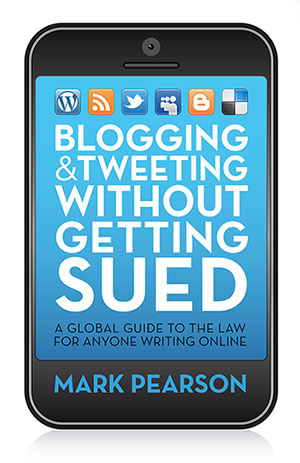Online Defamation: What you need to know
Be careful what you say online
So while the chances of being sued are slim, the bigger issue is that so many of us are unwittingly committing these civil wrongs in the first place.
If you've ever falsely criticised a friend, colleague or public figure and impugned their reputation in public, it's theoretically actionable.
"I don't think there are very well-established levels of media literacy in Australia, and I do think that poses a problem when we've got the democratisation of publishing platforms and the capacity to publish, but we don't have widespread capacities in terms of media literacy and particularly social media literacy," says Posetti.

And it's not just a problem that affects social media users in the mainstream. "Often either lawyers or what you might call academics or intellectuals let their guard down as well," Mark Pearson says. "I think all of us, because of the very nature of social media being engaging in a conversation online, let our guard down because we slip into a conversational tone where we're talking with a group of friends and psychologically we fall into that and forget the safeguards that we use when formally broadcasting or writing a written publication. So the ordinary person, the lay person, is really up against it if they have no background in this area at all."
Hundreds of jurisdictions
In simpler times, if you defamed someone, the litigation of the matter could be considered a relatively straightforward affair.
The court would look at where the defamatory communication was published and the laws of that jurisdiction would apply in determining whether the defaming party was to be held liable.
These days, things are a little more complex. Communications on the internet are effectively published everywhere; defamatory material contained in a blog or social media update could be downloaded virtually anywhere at any time, potentially exposing the publisher(s) in question to the laws of several hundred legal jurisdictions worldwide.
Get daily insight, inspiration and deals in your inbox
Sign up for breaking news, reviews, opinion, top tech deals, and more.

In 2002 the High Court of Australia handed down a landmark decision in Dow Jones v Gutnick, in which the Australian respondent Joseph Gutnick was held to be able to sue for defamation in his home state of Victoria — where his reputation existed — over a defamatory article published online by a magazine based in the United States.
Legal representation for the appellant argued that the place of publication was the US, but the High Court ruled that in the case of material published on the internet, publication rather occurs wherever the material is downloaded.
According to Justin Castelan, a Melbourne-based barrister and author of the legal blogDefamation Watch, the Gutnick decision had a transformative effect on defamation law and not only in Australia. "It was a ground-breaking case. The High Court said, when a person is suing, if their reputation is in Victoria they're entitled to sue in Victoria, provided people have read [the defamatory communication] in Victoria, because the crucial point is that the place of publication is where it is read and understood."
While the case isn't strictly authority anywhere outside Australia, the decision is frequently referred to internationally, especially in common law countries such as Canada and England.
"I think it's fairly widely accepted throughout superior courts in the Western world that people are responsible wherever the material is downloaded," Mark Pearson says. "I don't want to be a scary bear telling everybody not to use social media. I'm an active user myself and I think there are huge benefits. And I certainly am not arguing that if somebody publishes something they're going to get dragged across the world to face court in some remote country. But I think it's a reasonable point to make given the amount of international travel people do today, that people should think twice, certainly before publishing something not just defamatory — but that may well be illegal in a travel destination."